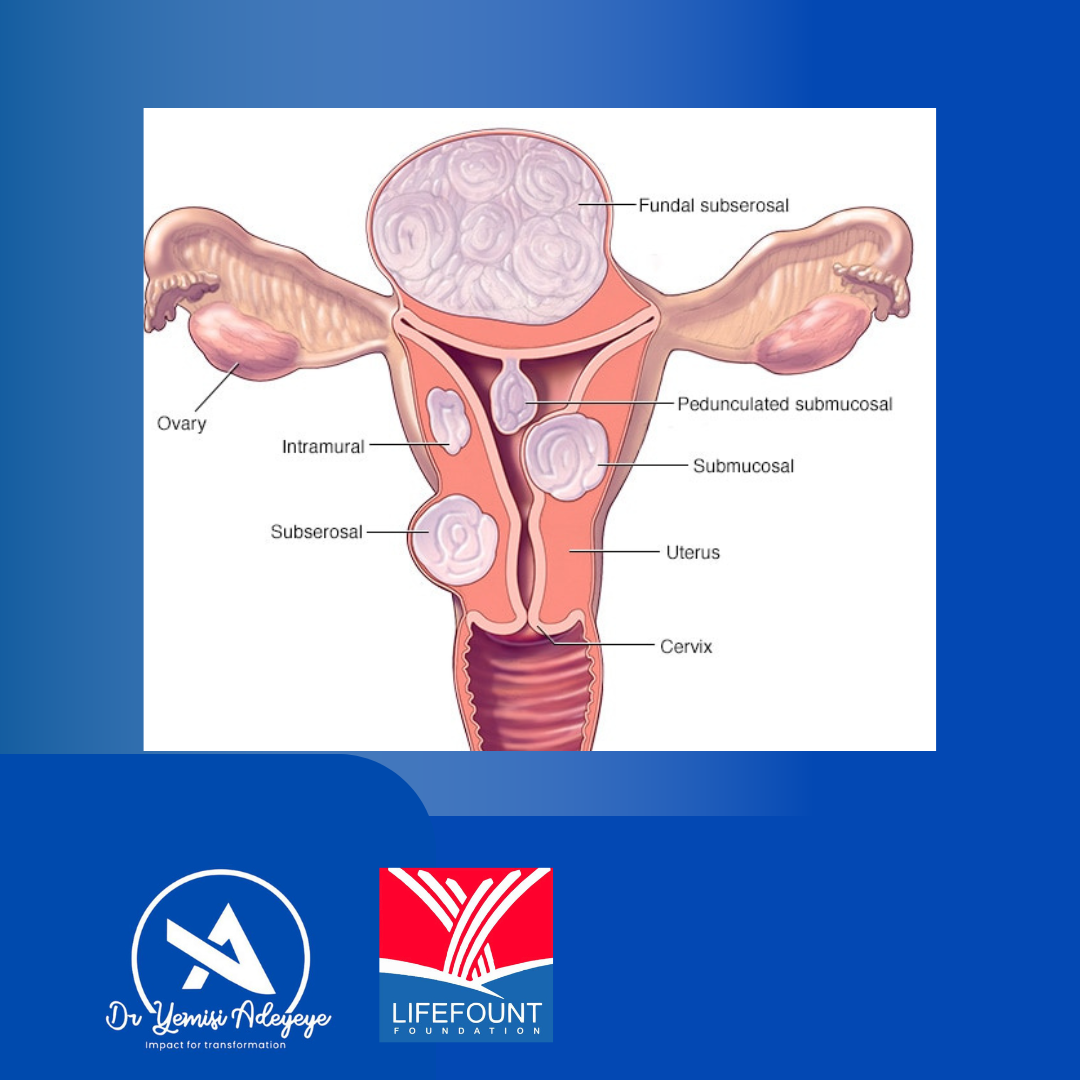Uterine fibroids are noncancerous growths of the uterus that often appear during childbearing years. It is also called leiomyomas or myomas. Uterine fibroids are not associated with an increased risk of uterine cancer and almost never develop into cancer.
Fibroids range in size from seedlings, undetectable by the human eye, to bulky masses that can distort and enlarge the size of the uterus. You can have a single fibroid or multiple ones. In extreme cases, multiple fibroids can expand the uterus so much that it reaches the rib cage and can add to the patient's weight.
Symptoms
Many women who have fibroids rarely have any noticeable symptoms. In those that do, symptoms can be influenced by the location, size and number of fibroids.
In women who show symptoms, the most common signs and symptoms of uterine fibroids include:
1. Heavy and long menstrual bleeding
Menstrual periods lasting more than a week, and is heavy can be a subtle indication that something is wrong.
2. Pelvic pressure or pain
Pain in the pelvic is another symptom of fibroid.
3. Frequent urination or difficulty in emptying the bladder is another sign that an unusual occurrence is happening. When your urge to pee is almost every minute, you need to check out why.
4. Constipation: frequent indigestion is another symptom.
5. Backache or leg pains
Back and leg pains are also symptoms of this anomaly.
Rarely, a fibroid can cause acute pain when it outgrows its blood supply, and begins to die.
Classifications of Uterine Fibroid
Fibroids are generally classified by their location.
A. Intramural fibroids grow within the muscular uterine wall.
B. Submucosal fibroids bulge into the uterine cavity.
C. Subserosal fibroids project to the outside of the uterus.
When should I see a doctor?
You need to see a doctor when you have the following symptoms:
1. Pelvic pain that doesn't go away.
2. Overly heavy, prolonged or painful periods.
3. Spotting or bleeding between periods.
4. Difficulty emptying your bladder.
5. Unexplained low red blood cell count (anemia).
Urgent medical care would be needed if you have severe vaginal bleeding or sharp pelvic pain that comes on suddenly.
Lifefount International Hospital is equipped and have qualified doctors that would attend to you, carry out some investigations and inform you about the modalities of treatment available. Although, the best treatment for symptomatic fibroid is surgical intervention.
For further enquiries, send a Whatsapp message to this number +234 8168 844 789
